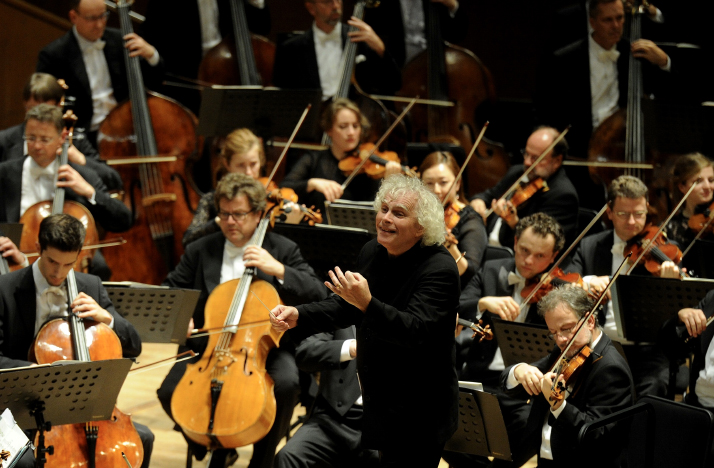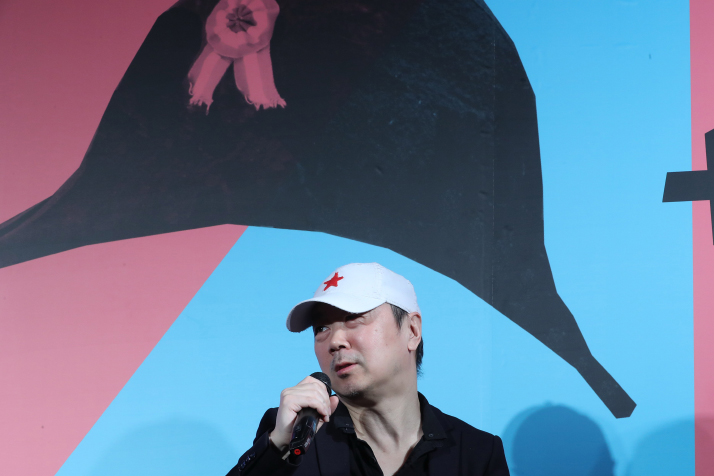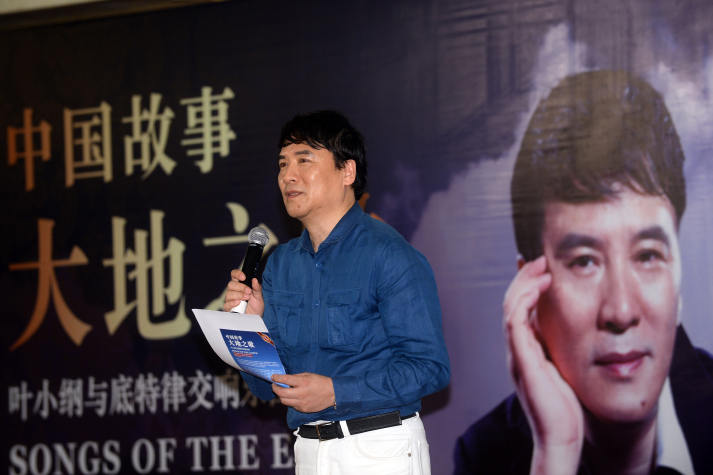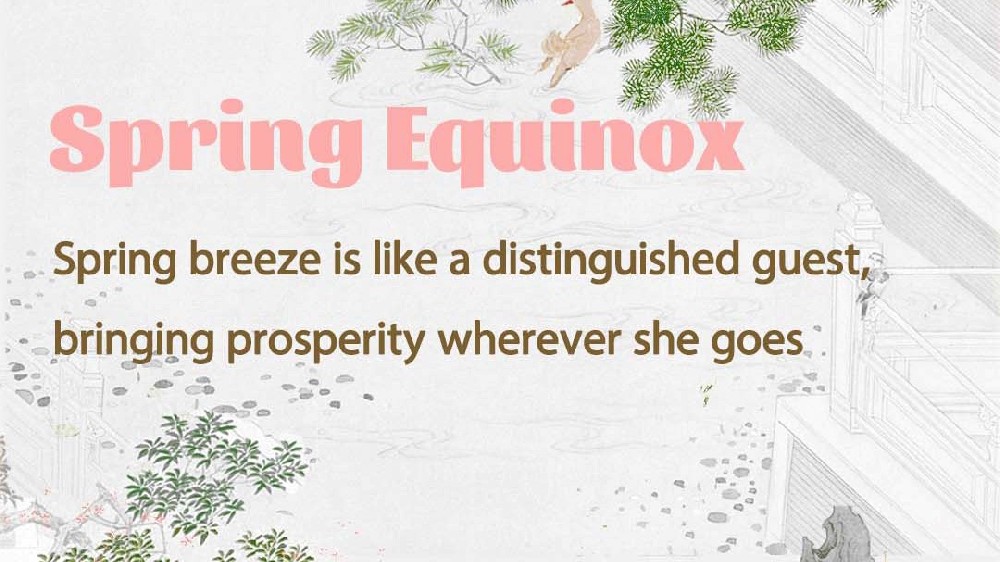Hitting a High Note

Fu Yu, a music teacher in Beijing, is glad that he is a contemporary and beneficiary of reform and opening up. "It gave me access to music from all around the world and the opportunity to run a piano school for children," the 44-year-old said.
When Fu was 10, his father gave him a tape recorder as a birthday gift. It was as heavy as a brick and cost 100 yuan ($45.5 then), more than one month's salary for his father at that time. "My father hoped I would learn English with the recorder. But I used it to secretly listen to music," he confessed.
Homeland Love was the first popular song he listened to on the recorder. It was first sung by renowned singer Li Guyi and released at the end of 1979. The heartfelt lyrics and the singer's breathy voice made it touching and strikingly different from most songs at that time. Hailed as the first pop song on the Chinese mainland, the popularity of Homeland Love was a signal of reform and opening up in China's music community. After that, pop music became part of Chinese lives.
Fu still has the old tape containing Homeland Love. "The songs on that tape were evidence of the beginning of a new era. Reform and opening up improved our lives and changed our taste in music," he said.

Access to Western music
For the Chinese classical music circles, 1979 was a historic year. Many big names in the Western classical music world visited China that year. Seiji Ozawa, a prestigious Japanese conductor who was born in China, came back to China with the Boston Symphony Orchestra in March. Three months later, American violinist Isaac Stern staged two concerts in Beijing and Shanghai. Stern's visit was viewed as a milestone in the history of Western culture breaking into China. The visit later became part of a documentary, From Mao to Mozart: Isaac Stern in China, directed by Murray Lemer. It won the Academy Award for Best Documentary in 1981.
Four months later, two more musicians, Yehudi Menuhin, an American-born violinist and conductor, and Austrian conductor Herbert von Karajan, were invited to visit China successively. They helped open a wider window for Chinese classical music lovers.
In the meantime, the Chinese got closer to Western pop music. On April 10, 1985, Wham! held a concert in the Beijing Workers' Gymnasium, then the largest venue in the capital. The British pop duo became the first Western pop band to perform on the Chinese mainland. The ticket cost 5 yuan ($1.7 then), then one 10th of the average monthly income of Chinese urban residents. But even the steep price couldn't keep music lovers away. Many queued up for hours to buy a ticket although most of them had never heard of Wham!. The concert was a huge success. The music rocked the gymnasium, though the audience was stunned by the novelty of it and the dancers in their extravagant costumes. Most people then living on the Chinese mainland wore plain clothes in green and grey.
"Wham!'s Beijing concert was part of the reform and opening-up drive," Mao Danqing, an author born in Beijing and now living in Japan, said. Mao was a Peking University student at that time. "What Wham! brought was a way of life that many Chinese youth admired at that time," Mao added.
The show had an impact on many Chinese musicians, such as Cui Jian, aka the "godfather of Chinese rock 'n' roll", and Dou Wei, former lead singer of the renowned rock band Black Panther. The next year, Cui, then 25, belted out his now famous song Nothing to My Name on stage at a concert in Beijing. The song is widely regarded as the first landmark in the history of Chinese rock 'n' roll.

A new force
In the following decades, many Chinese pop songs emerged and won universal praise, according to Xie Jiaxing, a professor at the Central Conservatory of Music (CCM) in Beijing. Concerts were frequently held and pop music was offered as a major in many colleges and universities.
Many prospective musicians became students of the music conservatories and colleges that had been closed for 10 years because of the "cultural revolution" (1966-76). "The reform and opening-up policy changed the destiny of our generation," Ye Xiaogang, President of the Chinese Musicians' Association, said. Ye, a worker in the 1970s, put down the tools he had been using for six years and took up the pen to sit for the college entrance exam in 1978. He became a CCM composition major student. He is also one of the first batch of Chinese composers who were sent abroad for advanced studies after the launch of reform and opening up in 1978. In April 2018, four of Ye's symphony scores were performed at the National Center for the Performing Arts in Beijing.
Many of Ye's classmates at the CCM have also become big names in China, including Tan Dun, the composer and conductor known for his scores for the Ang Lee film Crouching Tiger, Hidden Dragon. Tan's scores won the Academy Award for Best Original Score in 2001.
"The years of reform and opening up have seen a boom in Chinese symphony compositions. Many Chinese composers are integrating Chinese musical elements and foreign techniques, creating masterpieces," Yang Yandi, a professor at the Shanghai Conservatory of Music, said.
An example is Bao Yuankai, a composer and professor at Xiamen University. Some of his scores combine Chinese musical elements such as the Peking Opera with Western symphonies.
Zhao Jiping, another renowned composer, has also created many melodies with distinctive Chinese styles. He was fond of collecting folk songs in the northwestern province of Shaanxi and during his tenure as president of the Xi'an Conservatory of Music, started a folk song class. He also established a research center to study music in northwest China, reviving a large number of endangered folk music pieces.
In 2004, China ratified the UNESCO Convention for the Safeguarding of the Intangible Cultural Heritage. From then on, the folk music preservation efforts of Zhao and many others have received greater attention and support. "China has scaled up its efforts to protect intangible cultural heritage and achieved impressive outcomes," Xie said.

